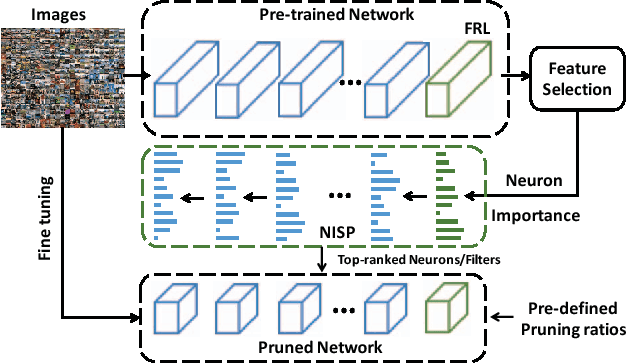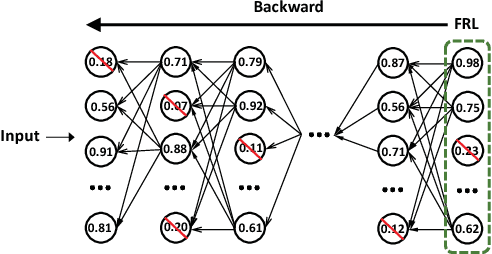NISP: Pruning Networks using Neuron Importance Score Propagation
Paper and Code
Mar 21, 2018



To reduce the significant redundancy in deep Convolutional Neural Networks (CNNs), most existing methods prune neurons by only considering statistics of an individual layer or two consecutive layers (e.g., prune one layer to minimize the reconstruction error of the next layer), ignoring the effect of error propagation in deep networks. In contrast, we argue that it is essential to prune neurons in the entire neuron network jointly based on a unified goal: minimizing the reconstruction error of important responses in the "final response layer" (FRL), which is the second-to-last layer before classification, for a pruned network to retrain its predictive power. Specifically, we apply feature ranking techniques to measure the importance of each neuron in the FRL, and formulate network pruning as a binary integer optimization problem and derive a closed-form solution to it for pruning neurons in earlier layers. Based on our theoretical analysis, we propose the Neuron Importance Score Propagation (NISP) algorithm to propagate the importance scores of final responses to every neuron in the network. The CNN is pruned by removing neurons with least importance, and then fine-tuned to retain its predictive power. NISP is evaluated on several datasets with multiple CNN models and demonstrated to achieve significant acceleration and compression with negligible accuracy loss.
 Add to Chrome
Add to Chrome Add to Firefox
Add to Firefox Add to Edge
Add to Edge